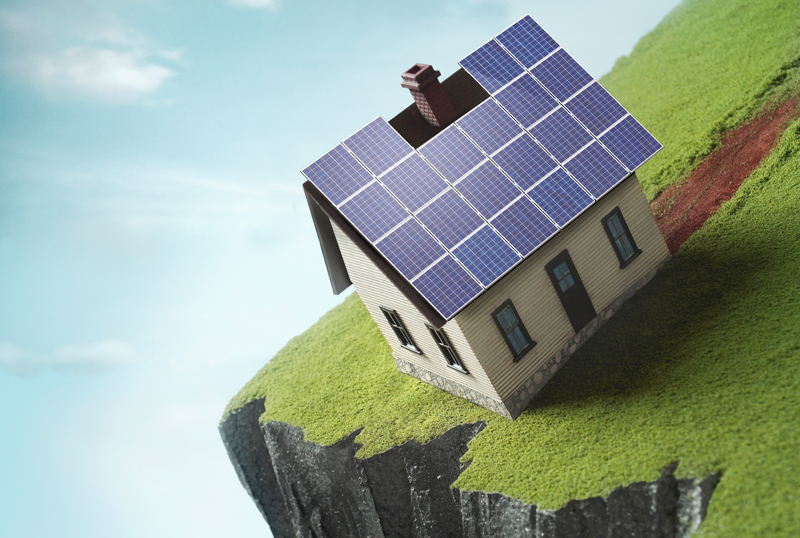Finally after much aggravation with the Outback, constant updates, upgrades and issues, I got tired of it and decided to scrap the entire system and start over.......... And we did, and right now, out of time, and the rest of the story will have to wait until next week...................
The Outback system was way too complicated, and basically very few people could deal with the issues. I was lucky, finally the fellow that worked on the original install was back on my solar team, and after the system was down for over 6 months or more, the company that did the original install, no longer had anyone that could work with the system, or understand it, and screwed it up worse than it was. With my guy back on the scene, he had it up and running in a couple of days. We checked the panels, and to our dismay we had lost half our panels due to weather leaks, water and so forth. Trying to contact Canadian Solar, they did not answer emails, phone or anything else. In fact, they did not even make our 250 watt panels anymore, if I wanted to replace I was going to have to find used panels........... which we did on Ebay, and was going to cost around $3000 to bring the system back up with the same panels........ Hmmmmmm......................
We went along for a few months in 2022........ and I decided to make a BIG change, I was sick of the Outback and its unreliability. I mean, what if the Zombie Apocalypse happened, how long would I have power before the OUtback took a big crap.......... ?????? Then what?
Started talking to my guy, he had just installed a couple of new SolArk systems, and was very impressed with them, much more simple, but still a very serious system, engineered and built by a group of military veterans and engineers based in Texas......... My guy said support was incredible, and people were there to help, assist and do what was needed to get you running, and keep you running, and the system was all inclusive, much more simple and way more reliable. Now, today, they have grown to be a leader in this technology. I had already purchased a 5 kw inverter for our Farm, and had intended to upgrade that system there, prices were very reasonable and at the time the 5 kw system only cost $5000.............. For here, I took a look at the 15 kw system to replace the Outback......... now in hindsight I wish I would have added a larger version, but the 15kw was the largest for residential, then you went to commercial....... so.............
The end of 2022 we got the 15kw Sol-Ark Unit in, and had it installed January 2023. We were still working with the surviving panels from Canadian Solar, and we only had about 8-9 kw capacity left out of 16.7 kw.......... The system ran like a charm, day in, day out, zero issues at all.......... Now, the Sol-Ark 15kw inverter was not that expensive even then, about $8000 or so, then installation which was not difficult at all, it was more difficult to remove the Outback and all the crap it had to have than to install the all inclusive ONE BOX Sol-Ark............ And of course it hooks to the internet and can be monitored by not just myself, but Sol-Ark as well...... This became important on one occasion since installation. The system is all inclusive, one box does everything, takes care of everything, it is way more simple to run, its EMP proof, or at least seriously resistant and I think far more reliable. If you do have an issue, you can actually speak to someone and or they will get back to you.
We had a small issue only once since installing, I even forget exactly what it was, but we spoke to the Tech, he saw it online, it was a simple update, in 10 minutes he solved it via online and there has not been any other issues. It runs daily and supposedly sends power back to the grid and removed from your power bill, but that is basically a non issue and really makes you nothing.
Last fall instead of trying to find used Canadian Solar panels to match, we replaced all the solar panels with the newest European made 365 watt panels. We installed 17 kw worth of panels, the 15kw can handle more at peak, however even at 17kw we may never come close, I would be impressed at 14kw in middle of June when the sun is at its very peak, dead over top of the panels. But, right now, this past week on a sunny day we were hitting 11 kw and its only first of February....> Hmmmm.......... Maybe we do pretty good with new higher more efficient panels and system? We will see, but I have never ever made 11 kw in February.
The real value is going off grid. Well here, we have the system broken out into the house side and the building side. I can run power to both, or either. When I play off grid, when the grid is up and running, I normally take the building off grid during the day. We can run everything except the major heat pumps and air con off grid. All lights, computers, fridges and freezers. The water pump is on the house side. I do have to cut the pool pump off, it hits 2-2.5 kw and I can do without the pool pump a few hours, or even days this time of year. It is not hard to take off grid. I make sure the Solar breakers to the building and house are off, easy, they are always OFF.... outside I flip over the main transfer switch (Manual) to go off grid. Then upstairs to flip the breaker on the solar to on for the building, and like magic the lights come back on. Now, you have to make sure all heat pumps and heavy drain items are off before hand. But then you run like normal until you are not making enough power. Right now, even February, I start making around 2-3 kw by 8-8:30 am, it goes up substantially Peaks at 11-1 pm, then starts dropping until around 3:30 or so. By around 4 pm this time of year we are down to only making around 1kw...... another hour it goes flat........Then what is stored in the batteries starts to get used.
Playing off grid, I normally go back on grid by around 3 pm or so.......... I can run 6+ hours off grid. Now, if I am not running heat or air con, I can just leave the building off grid until the next day and not worry about it, I have enough battery power to run all the freezers and fridges all night..........
Zombie Apocalypse time! Now you have to get serious about limiting power with this system. You can forget the big heat pumps for air/heat. You can forget the big ovens and clothes dryers and heavy power units. You can run all fridges, freezers, lights, computers, chargers, tv's, hybrid hot water heaters, your deep well water pump, and most other essentials. Use your heaviest power units from 10 am to 2 pm here, this time of year, and start to wean off later in the evening and down to a few lights, and all fridges and freezers overnight. Then by 8 am next morning you are making power again, charging batteries is priority of the system and go again...... manage power all day. You take your showers and other heavy electrical pulls from 10 am to 2 pm.........
It can be done, but it can be a pain in the ass too............... and of course, all this depends on your amount of sunshine......... Today it is cloudy and raining.... you still make power, but not much........ at this moment I am making 700 watts.......... If I was dependent, I would be in the dark and hoping I had enough power to keep fridges/freezers running until the "Sun Came Back on".......... Oh wow, it just jumped up to 1200 watts...... 1.2 kw......... HEH......
Sol-Ark is the best I have seen or know about at this time, and for a solar system, affordable ............. I have $8000 or so in the Sol-Ark Inverter, and another $10,000 in the new panels we just put in last fall.......
I also wanted to add the website for Sol-Ark............. you can find lots of good, interesting things and learn a lot here.........
Optimize energy performance with Sol-Ark's energy storage systems. Increase business backup and target electric bill savings today! | Sol-Ark

www.sol-ark.com




















